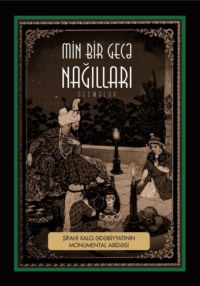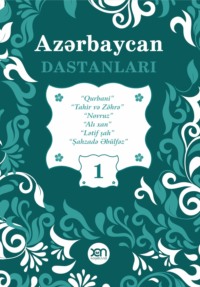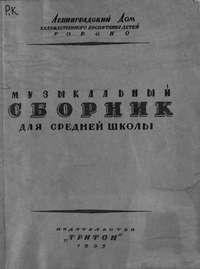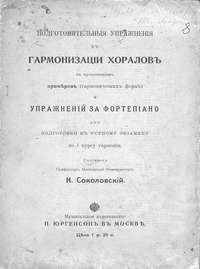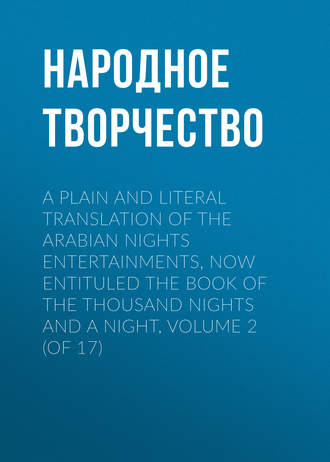 полная версия
полная версияA plain and literal translation of the Arabian nights entertainments, now entituled The Book of the Thousand Nights and a Night, Volume 2 (of 17)
391
These silly scandals, which cause us only to smile, excite Easterns to fury. I have seen a Moslem wild with rage on hearing a Christian parody the opening words of the Koran, "Bismillahi 'l-Rahmáni 'l-Rahím, Mismish wa Kamar al-din," roughly translated, "In the name of Allah, the Compassionating, the Compassionate! Apricots and marmalade." The idea of the Holy Merde might have been suggested by the Hindus: see Mandeville, of the archiprotopapaton (prelate) carrying ox-dung and urine to the King, who therewith anoints his brow and breast, &c. And, incredible to relate, this is still practised after a fashion by the Parsis, one of the most progressive and the sharpest witted of Asiatic races.
392
Meaning that he had marked his brow with a cross (of ashes?) as certain do on Ash-Wednesday.
393
Syria, the "left-hand land" as has before been explained. The popular saying about its people is "Shámi shúmi!" – the Syrian is small potatoes (to render the sense Americanicè). Nor did Syrus, the slave in Roman days, bear the best of names. In Al-Hijaz the Syrian is addressed "Abú Shám" (Father of Syria) and insulted as "Abuser of the Salt" a (traitor). Yet many sayings of Mohammed are recorded in honour of Syria, and he sometimes used Syriac words. Such were "Bakh, bakh" (=euge, before noticed), and "Kakh," a congener of the Latin Cacus and Caca which our day has docked to "cack." (Pilgrimage iii. 115).
394
Koran xiv. 34. "They (Unbelievers) shall be thrown therein (i. e., the House of Perdition=Hell); and an unhappy dwelling shall it be."
395
The leg-cut is a prime favourite with the Eastern Sworder, and a heavy two-handed blade easily severs a horse's leg.
396
Mohammed repeatedly declared (Koran lxi.) that the Christians had falsified the passage ("I go to my Father and the Paraclete shall come," John xvi. 7) promising the advent of the Comforter, παράκλητος, (ibid. xiv. 20; xv. 26) by substituting the latter word for περικλυτός glorious, renowned, i. e., Ahmed or Mohammed=the praised one. This may have been found in the Arabic translation of the Gospels made by Warakah, cousin to Mohammed's first wife; and hence in Koran lxi. we find Jesus prophesying of an Apostle "whose name shall be Ahmad." The word has consequently been inserted into the Arabic Gospel of Saint Barnabas (Dabistan iii. 67). Moslems accept the Pentateuch, the Psalter and the Gospel; but assert (Koran, passim) that all extant copies have been Hopelessly corrupted, and they are right. Moses, to whom the Pentateuch is attributed, notices his own death and burial – "the mair the miracle," said the old Scotch lady. The "Psalms of David" range over a period of some five hundred years, and there are three Isaiahs who pass with the vulgar for one. The many apocryphal Gospels, all of which have been held genuine and canonical at different times and in different places, prove that the four, which are still in use, were retained because they lack the manifest absurdities of their discarded rivals.
397
Arab. "Labbayka;" the Pilgrimage-cry (Night xxii.) which in Arabic is,
Labbayk' Allahumma, Labbayk'!
Lá Sharíka laka, Labbayk'!
Inna 'l-hamda w'al ni'amata laka wa'l mulk!
Labbayk' Allahumma, Labbayk'!
Some add "Here am I, and I honour Thee, the son of Thy two slaves; beneficence and good are all between Thy hands." With the "Talbiyah" the pilgrim should bless the Prophet, pray Allah to grant Heaven and exclaim, "By Thy mercy spare us from the pains of Hell-fire!" (Pilgrimage iii. 232.) Labbayka occurs in the verses attributed to Caliph Ali; so labba=he faced and yalubbu=it faces (as one house faces another); lastly, he professed submission to Allah; in which sense, together with the verbal noun "Talbiyah," it is used by Al-Hariri (Pref. and Ass. of Su'adah).
398
Arab. Kissís (plur. Kusús) from Ἐκκλησιαστὴς.
399
Koran ii. The "red cow" is evidently the "red heifer" of Barnabas, chapt. vii.
400
Arab. "Al-Jásalík"=Καθολικὸς.
401
This is from the first "Gospel of Infancy," wherein Jesus said to his mother, "Verily I am Jesus, the Son of God, the Word which thou hast brought forth, as the Angel Gabriel did declare unto thee; and my Father hath sent me to save the world" (chapt. i. 2). The passage is virtually quoted in the Koran (chapt. iii. 141), of course omitting "the Son of God."
402
Mohammed allowed his locks to grow down to his ear-lobes but never lower.
403
Arab. "Lisám" I have explained as a covering for the lower face, made by drawing over it the corner of the head-kerchief (Pilgrimage i. 346). The Lisám of the African Tawárik hoods the eyes so that a man must turn up his face to see, and swathes all the lower half, leaving only the nose exposed. And this is worn by many men by night as well as by day, doubtless to avoid the evil eye. The native Sultans of Darfur, like those of Bornu and others further west, used white muslin as a face-wrap: hence, too, the ceremonies when spitting, etc., etc. The Kúfiyah or head-kerchief of the Arabs soon reached Europe and became in Low Latin Cuphia; in Spanish Escofia; in Ital. Cuffia or Scuffia; in French Escoffion, Scofion (Reine Marguerite) Coëffe (une pellicule, marque de bonheur), Coiffe and Coife, &c.; the Scotch Curch or Coif, opposed to the maiden snood; and, lastly our Sergeant-at-Law's Coif. Littré, the Learned, who in erudition was né coiffé, has missed this obvious derivation.
404
"Cutting," throughout the book, alludes to the scymitar with which Arabs never give point; and "thrusting" to the footman's spear and the horseman's lance.
405
A popular phrase, I repeat, for extreme terror and consternation.
406
The name usually applies to a well-known district and city of Al-Yaman, where "Koss the eloquent" was bishop in Mohammed's day: the Negiran of D'Herbelot. Here, however, it is the Syrian Najrán (Nejrân of Missionary Porter's miserable Handbook); now a wretched village near the volcanic Lajjá, about one hundred and twenty miles direct south of Damascus and held by Druzes and Christians.
407
The Kantár (quintal) of 100 ratls (lbs.)=98-99 lbs. avoir.
408
Arab. "Juráb" (bag) mi'adat-ih (of his belly), the "curdling of the testicles" in fear is often mentioned.
409
Clearly alluding to the magic so deeply studied by mediæval Jews.
410
Arab. "Sahákah," lit. rubbing. The Moslem Harem is a great school for this "Lesbian (which I would call Atossan) love"; but the motive of the practice lies deeper. As amongst men the mixture of the feminine with the masculine temperament leads to sodomy, so the reverse makes women prefer their own sex. These tribades are mostly known by peculiarities of form and features, hairy cheeks and upper lips, gruff voices, hircine odour and the large projecting clitoris with erectile powers known to the Arabs as "bazar" (بظر), hence Tabzír=circumcision or amputation of such clitoris. Burckhardt (Prov. 436) translates "Bazarah" by slut or wench. He adds "it originally signifies the labia which the Cairenes also entitle Zambúr and which are cut off in girlhood." See also Lane, Lex. s. v.; Tabzír. Both writers confuse excision of the nymphæ with circumcision of the clitoris (Zambúr). Al-Siyúti (Kitab al-Izá' fi'Ilm al-Nikah) has a very interesting chapter on Sapphic venery, which is well known to Europe as proved by such works as "Gamiani," and "Anandria ou Confessions de Mademoiselle Sappho, avec la Clef," Lesbos, 1778. Onanism is fatally prevalent: in many Harems and girls' schools tallow-candles and similar succedania are vainly forbidden and bananas when detected are cut into four so as to be useless; of late years, however, China has sent some marvellous artificial phalli of stuffed bladder, horn and even caoutchouc, the latter material of course borrowed from Europe.
411
This is considered a powerful aphrodisiac in the East. Hence male devotees are advised to avoid the "two reds," i. e. meat and wine; while the "two reds," which corrupt women, are gold and saffron, that is perfumery. Hence also the saying of Mohammed: – "Perfumes for men should have scent and not colour; for women should have colour and not scent." (Mishkát al-Masábíh ii. 361.)
412
These are the "Hibás" or thin cords of wool which the Badawi binds round his legs, I believe to keep off cramp. (Pilgrimage iii. 78).
413
Crying out "La iláha illa 'llah." (There is no god but the God.); technically called "Tahlíl."
414
i. e. Men, angels and devils, the "Triloka" (triple people) of the Hindus. Alamín (plur.), never Alamayn (dual), is the Triregno denoted by the papal Tiara, the three Christian kingdoms being Heaven, Hell and Purgatory.
415
Matrahinna or Mit-Rahinah is a well-known village near Memphis; the name being derived from the old Egyptian Minat-ro-hinnu, the port at the mouth of the canal. Let me remark that two of these three words, "Minat" and "Ru," are still common in "Aryan" Persian.
416
Kirámat, a sign, a prodigy, opposed to Mu'ujizah, a miracle wrought by a prophet. The Súfis explain this thaumaturgy by Allah changing something of Nature's ordinary course in favour of an especial worshipper; and, after a fashion, this is Catholic doctrine (See Dabistan, iii. 173).
417
Koran, x. 25, "until the earth receive its vesture and be adorned with various plants."
418
i. e. the young hair sprouting on the boy's cheek.
419
A fighter for the faith and now a title which follows the name, e. g. Osmán Páshá Gházi, whom the English press dubbed "Gházi Osmán."
420
That is the King of Constantinople.
421
Cassia fistularis, a kind of carob: "Shambar" is the Arab. form of the Persian "Chambar."
422
Koran, ii. 149. Hence the vulgar idea that Martyrs are still alive in the flesh. See my Pilgrimage (ii. 110 and elsewhere) for the romantic and picturesque consequences of that belief. The Commentators (Jalál al-Dín, etc.) play tricks with the Koranic words, "they (martyrs) are not dead but living" (iii. 179) by placing the happy souls in the crops of green birds which eat of the fruits and drink of the waters of Paradise; whereas the reprobates and the (very) wicked are deposited in black birds which drain the sanies and the boiling waters of Hell. Amongst the Greeks a body remaining entire long after death suggests Anathema Maranatha: it is the contrary with Catholic Christians (Boccaccio iv. 5, of the Pot of Basil). Concerning this creed see Maundrell, Letter of 1698.
423
Tor is "Mount Sinai" in the Koran (xcv. I). I have only to repeat my opinion concerning the present site so called: "It is evident that Jebel Serbal dates only from the early days of Coptic Christianity; that Jebel Musa, its Greek rival, rose after the visions of Helena in the fourth century; whilst the building of the Convent by Justinian belongs to A.D. 527. Ras Safsáfah, its rival to the north, is an affair of yesterday, and may be called the invention of Robinson; and Jebel Katerina, to the South is the property of Rüppell" (Midian Revisited i., 237.). I would therefore call the "Sinaitic" Peninsula, Peninsula of Paran in old days and Peninsula of Tor (from its chief port) in our time. It is still my conviction that the true Mount Sinai will be found in Jabal Aráif, or some such unimportant height to the north of the modern Hajj-road from Suez to Akabah. Even about the name (which the Koran writes "Sainá" and "Sínín") there is a dispute: It is usually derived from the root "Sanah"=sentis, a bush; but this is not satisfactory. Our eminent Assyriologist, Professor Sayce, would connect it with "Sin," the Assyrian Moon-god, as Mount Nebo with the Sun-god and he expects to find there the ruins of a Lunar temple as a Solar fane stands on Ba'al Zapuna (Baal Zephon) or the classical Mount Casius.
424
Alluding to the miracle of Aaron's rod (the gift of Jethro) as related in the Koran (chapts. vii. I., xx., etc.), where the Egyptian sorcerers threw down thick ropes which by their magic twisted and coiled like serpents.
425
Arab. "Ayát" lit. "signs," here "miracles of the truth," l.c. Koranic versets as opposed to chapters. The ranks of the enemy represent the latter, sword-cuts the former – a very persuasive mode of preaching.
426
Lane (M. E. chapt. iii.) shows by a sketch the position of the worshipper during this "Salám" which is addressed, some say, to the guardian angels, others suppose to all brother-believers and angels.
427
i. e., where the Syrians found him.
428
i. e., Dedianus Arabised; a name knightly and plebeian.
429
In such tales the Wazir is usually the sharp-witted man, contrasting with the "dummy," his master.
430
Carrier-pigeons were extensively used at this time. The Caliph Al-Násir li-Díni 'llah (regn. A. H. 575=1180) was, according to Ibn Khaldún, very fond of them. The moderns of Damascus still affect them. My successor, Mr. Consul Kirby Green, wrote an excellent report on pigeon-fancying at Damascus. The so-called Maundeville or Mandeville in A.D. 1322 speaks of carrier-pigeons in Syria as a well-known mode of intercourse between lord and lord.
431
Mohammed who declared "There is no monkery in Al-Islam," and who virtually abolished the priest, had an especial aversion to the shaveling (Ruhbán). But the "Gens æterna in quâ nemo nascitur" (Pliny v. 17) managed to appear even in Al-Islam, as Fakirs, Dervishes, Súfis, etc. Of this more hereafter.
432
i. e. her holiness would act like a fascinating talisman.
433
The "smoking out" practice is common amongst the Arabs: hence Marshal Pelissier's so-called "barbarity." The Public is apt to forget that on a campaign the general's first duty is to save his own men by any practice which the laws of fair warfare do not absolutely forbid.
434
i. e., Mohammed, who promised Heaven and threatened Hell.
435
Arab. "Ahr" or "ihr," fornication or adultery, i. e., irreligion, infidelity as amongst the Hebrews. (Isaiah xxiii. 17).
436
A sign of defeat.
437
In English "last night": I have already noted that the Moslem day, like the Jewish and the Scandinavian, begins at sundown; and "layl," a night, is often used to denote the twenty-four hours between sunset and sunset, whilst "yaum," a day, would by us be translated in many cases "battle-day."
438
Iterum the "Himalayan Brothers."
439
Again, Mohammed who promised Good to the Good, and vice versâ.
440
They are sad doggrel like most of the pièces d'occasion inserted in The Nights.
441
Here "Kahwah" (coffee) is used in its original sense of strong old wine. The derivation is "Akhá"=fastidire fecit, causing disinclination for food, the Matambre (kill-hunger) of the Iberians. In old days the scrupulous called coffee "Kihwah" in order to distinguish it from "Kahwah," wine.
442
i. e. Mohammed, a common title.
443
That is, fatal to the scoffer and the impious.
444
Equivalent to our "The Devil was sick," etc.
445
i. e. to the enemy: the North American Indians (so called) use similar forms of "inverted speech"; and the Australian aborigines are in no way behind them.
446
See Vol. i., p. 154 (Night xvi.).
447
Arab. "Sauf," a particle denoting a near future whereas "Sa-" points to one which may be very remote.
448
From the root "Shauh"=having a fascinating eye, terrifying. The Irish call the fascinater "eybitter" and the victim (who is also rhymed to death) "eybitten."
449
i. e., not like the noble-born, strong in enduring the stress of fight.
450
i. e., of Abraham. For the Well Zemzem and the Place of Abraham, see my Pilgrimage (iii. 171-175, etc.), where I described the water as of salt-bitter taste, like that of Epsom (iii. 203). Sir William Muir (in his excellent life of Mahomet, I. cclviii.) remarks that "the flavour of stale water bottled up for months would not be a criterion of the same water freshly drawn;" but soldered tins-full of water drawn a fortnight before are to be had in Calcutta and elsewhere after Pilgrimage time; and analysis would at once detect the salt.
451
Racing was and is a favourite pastime with those hippomanists, the Arabs; but it contrasts strongly with our civilised form being a trial of endurance rather than of speed. The Prophet is said to have limited betting in these words, "There shall be no wagering save on the Khuff (camel's foot), the Hafir (hoof of horse, ass, etc.) or the Nasal (arrow-pile or lance head)."
452
In the Mac. Edit. "Arman"=Armenia, which has before occurred. The author or scribe here understands by "Cæsarea" not the old Turris Stratonis, Herod's city called after Augustus, but Cæsareia the capital of Cappadocia (Pliny, vi. 3), the royal residence before called Mazaca (Strabo).
453
An idiom meaning "a very fool."
454
i. e. Kána (was) má (that which) was (kána).
455
A son being "the lamp of a dark house."
456
When the Israelites refused to receive the Law (the souls of all the Prophets even those unborn being present at the Covenant), Allah tore up the mountain (Sinai which is not mentioned) by the roots and shook it over their heads to terrify them, saying, "Receive the Law which we have given you with a resolution to keep it" (Koran chapt. xlx. 170). Much of this story is from the Talmud (Abodah Sar. 2, 2, Tract Sabbath, etc.) whence Al-Islam borrowed so much of its Judaism, as it took Christianity from the Apocryphal New Testament. This tradition is still held by the Israelites, says Mr. Rodwell (p. 333) who refers it to a misunderstanding of Exod. xix. 17, rightly rendered in the E. version "at the nether part of the mountain."
457
Arab. "Azghán"=the camel-litters in which women travel.
458
i. e. to joy foes and dismay friends.
459
Whose eyes became white (i. e. went blind) with mourning for his son Joseph (Koran, chapt. xii. 84). He recovered his sight when his face was covered with the shirt which Gabriel had given to the youth after his brethren had thrown him into the well.
460
"Poison King" (Persian); or "Flower-King" (Arabic).
461
A delicate allusion to the size of her hips and back parts, in which volume is, I have said, greatly admired for the best of reasons.
462
All Prophets had some manual trade and that of David was making coats of mail, which he invented, for before his day men used plate-armour. So "Allah softened the iron for him" and in his hands it became like wax (Koran xxi., xxxiv., etc.). Hence a good coat of mail is called "Davidean." I have noticed (First Footsteps, p. 33 and elsewhere) the homage paid to the blacksmith on the principle which made Mulciber (Malik Kabir) a god. The myth of David inventing mail possibly arose from his peculiarly fighting career. Moslems venerate Dáúd on account of his extraordinary devotion; nor has this view of his character ceased: a modern divine preferred him to "all characters in history."
463
"Travel by Night," said the Prophet, "when the plagues of earth (scorpions, serpents, etc.) afflict ye not." Yet the night-march in Arabia is detestable (Pilgrimage iii.)
464
This form of ceremony is called "Istikbál" (coming forth to greet) and is regulated by the severest laws of etiquette. As a rule the greater the distance (which may be a minimum of one step) the higher the honour. Easterns infinitely despise strangers who ignore these vitals of politeness.
465
i. e. he will be a desert Nimrod and the game will delight to be killed by him.
466
This serves to keep the babe's eyes free from inflammation.
467
i. e. Crown of the Kings of amorous Blandishment.
468
Lane (i. 531) translates "the grey down." The Arabs use "Akhzar" (prop. "green") in many senses, fresh, grey-hued, etc.
469
Allusion to the well-known black banners of the house of Abbas. The Persians describe the growth of hair on a fair young face by, "His cheeks went into mourning for the loss of their charms."
470
. Arab. "Káfir" a Koranic word meaning Infidel, the active participle of Kufr=Infidelity i. e. rejecting the mission of Mohammed. It is insulting and in Turkish has been degraded to "Giaour." Here it means black, as Hafiz of Shiraz terms a cheek-mole "Hindu" i. e. dark-skinned and idolatrous.
471
Alluding to the travel of Moses (Koran chapt. xviii.) with Al-Khizr (the "evergreen Prophet") who had drunk of the Fountain of Life and enjoyed flourishing and continual youth. Moses is represented as the external and superficial religionist; the man of outsight; Al-Khizr as the spiritual and illuminated man of insight.
472
The lynx was used like the lion in Ancient Egypt and the Chita-leopard in India: I have never seen or heard of it in these days.
473
Arab. "Sukúr," whence our "Saker" the falcon, not to be confounded with the old Falco Sacer, the Gr. ἱέραξ. Falconry which, like all arts, began in Egypt, is an extensive subject throughout Moslem lands. I must refer my readers to "Falconry in the Valley of the Indus" (Van Voorst, 1852) and a long note in Pilgrimage iii. 71.
474
It was not respectful to pitch their camp within dog-bark.
475
Easterns attach great importance to softness and smoothness of skin and they are right: a harsh rough epidermis spoils sport with the handsomest woman.
476
Canticles vii. 8: Hosea xiv. 6.
477
The mesmeric attraction of like to like.
478
Arab. "Taswif"=saying "Sauf," I will do it soon. It is a beautiful word – etymologically.
479
A very far-fetched allusion. The face of the beloved springing from an unbuttoned robe is the moon rising over the camp in the hollow (bat' há).


